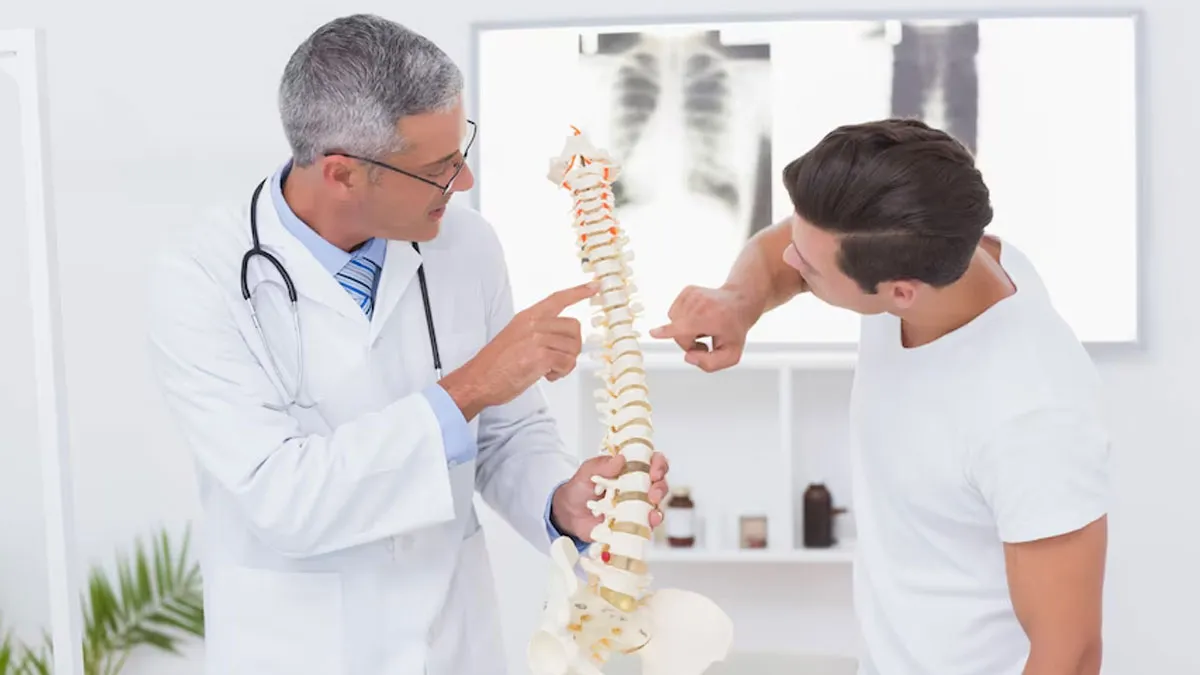
Does back pain or stiffness make even simple tasks feel like a struggle? For many of us, the demands of modern life, such as long hours at a desk, poor posture, and lack of movement are taking a toll on spine health, particularly in the neck (cervical) and lower back (lumbar) regions. While surgery might seem like the only option for relief, there’s good news: advanced non-surgical treatments are changing the game. These cutting-edge solutions not only target the root of the problem but also help your body heal naturally, restoring strength and mobility. If you’re ready to explore effective, minimally invasive ways to care for your spine, you’re in the right place.
Table of Content:-
We reached out to expert Dr Venkatesh Movva, Specialist, Regenerative Medicine, RegenOrthoSport, Hyderabad and Dallas, for insights on how these non-surgical interventions are transforming spine health care.
Why Spine Health Matters More Than Ever

“Adults between the ages of 30-50 are particularly vulnerable to spine-related issues. Long hours of sitting, often without ergonomic support, combined with limited physical activity, create the perfect storm for back problems. Delaying spine care can aggravate the condition and may eventually require surgical intervention. Early detection and a proactive approach can prevent significant complications,” said Dr Movva.
In addition to modern work habits, lifestyle factors, such as inactivity, smoking, and obesity significantly compromise spinal integrity. According to a 2024 study, these habits weaken the spine’s structure and heighten the risk of chronic back pain.
Also Read: Need For Spine Surgery: Expert Lists Signs When Surgery Is The Right Choice
Understanding the Importance of Lifestyle
"A healthy lifestyle plays a pivotal role in maintaining spine health. Regular exercise, maintaining an optimal weight, and incorporating ergonomic practices at work can reduce strain on the spine. Even simple habits, like stretching breaks during work or avoiding long periods of sitting," advised Dr Movva.
The Role of Regenerative Medicine
Regenerative medicine provides a hopeful, non-surgical way to treat early spine problems by using the body’s natural healing abilities to repair damaged tissues. Dr Movva explains the different treatments available:

- High-Concentrated Platelet (HCP) Therapy: This treatment involves extracting platelets from the patient’s blood and injecting them into the affected area. The platelets release growth factors that stimulate tissue repair, reduce inflammation, and promote healing.
- Bone Marrow Concentrate (BMC) Therapy: Stem cells harvested from the patient’s bone marrow are used to restore damaged tissues in the spine. This therapy not only promotes regeneration but also strengthens the affected areas, providing long-term relief.
- Physical Rehabilitation Post-Treatment: Following regenerative procedures, patients undergo physiotherapy to restore strength, improve flexibility, and maintain spinal health. A structured rehabilitation plan ensures optimal recovery and minimises the chances of recurrence.
Also Read: What Causes A Hump In The Back Of Your Neck? These Exercises Can Help Your Reverse It
Recognising Early Symptoms is Key

"Spinal problems often begin subtly, with stiffness or limited movement, but they can escalate quickly if ignored. Addressing these early warning signs can prevent complications and the need for invasive procedures. Non-surgical interventions like regenerative medicine provide effective solutions without the risks associated with surgery," emphasises Dr Movva.
According to Johns Hopkins Medicine, surgery can benefit some individuals, but it is typically regarded as a final option when all other conservative treatments have been tried. While it can address structural issues causing back pain, it does not always guarantee relief and, in some cases, might even exacerbate the discomfort.
Bottomline
Dr Movva concluded, “If you’ve been struggling with back pain, it’s time to take action. Adopting healthier lifestyle habits, such as regular exercise and better posture, is a great start. Additionally, advanced non-surgical treatments like regenerative medicine offer effective alternatives for long-lasting relief. Think carefully before opting for surgery, as it should always be the last resort.”
[Disclaimer: This article contains information provided by an expert and is for informational purposes only. Hence, we advise you to consult your own professional if you are dealing with any health issues to avoid complications.]
Also watch this video
Read Next
Sonam Kapoor Opens Up About PCOS And Body Shaming: Embracing Body Positivity Or Neutrality?
How we keep this article up to date:
We work with experts and keep a close eye on the latest in health and wellness. Whenever there is a new research or helpful information, we update our articles with accurate and useful advice.
Current Version